News & Commentary
Jul 28, 2020
Congress must protect the tens of millions of immigrants who have been left out of COVID-19 relief
As COVID-19 cases rapidly spike around the country, the need to slow the spread of this devastating virus and ensure the future of the country could not be more critical. That’s why last week we sent letters to US Senators Lindsey Graham and Tim Scott urging them to expand much needed COVID-19 relief in order to protect the tens of millions of immigrants who have been left out of relief.
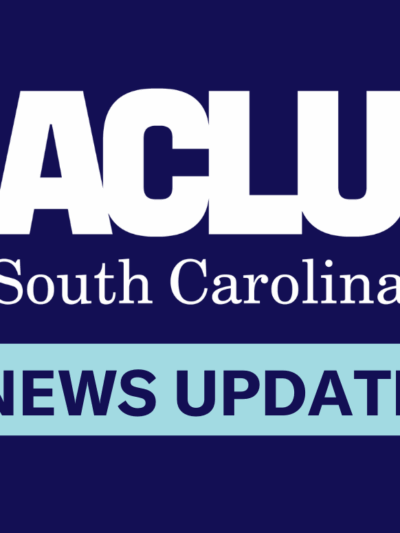
Jul 26, 2020
Take Action Now Against Expanded Policing in Charleston
Over the past two months, police in Charleston have shown that they are less concerned with serving and protecting our communities and more concerned with waging war on the people who live in them.Nearly two months ago on May 31, police in Charleston participated in mass police violence in Marion Square and the Eastside neighborhood, deploying potentially lethal weapons against peaceful protestors and community members. Charleston Police Department Chief Luther Reynolds and Charleston County Sheriff Al Cannon continue to ignore community calls for an apology and investigation into their officers’ actions. The incidents themselves and leaders’ subsequent dismissal of the harm they have caused has deepened already-existing community distrust for police revealed by the racial bias audit of the Charleston Police Department.Earlier this week, the Charleston Police Department, Charleston County Sheriff's Office, and the South Carolina Law Enforcement Division (SLED) announced plans to increase police actions in Charleston, including “pop-up traffic checkpoints” and the activation of the SWAT team for “proactive interdiction patrol,” which the Charleston Police Department defines, in part, as targeting “high-crime areas.” This expansion is happening before a backdrop of nationwide violence from local law enforcement and federal agents against people protesting police brutality and racist policing.No matter what the police say, these actions will not make our community safer. Instead, they will further criminalize Black, Brown and poor people, who are already disproportionately targeted by police in Charleston, and deepen distrust for police in communities that are most impacted by police violence.Despite months of sustained activism against police brutality and targeted over-policing in Black and Brown communities, Chief Reynolds last week asserted that “people don’t want us to depolice, quite the opposite.” In the birthplace of America’s first police force which was originally established as a slave patrol, Chief Reynolds’ claim is a direct dismissal of the outcries of Black people who, for centuries, have been oppressed by the racist foundation and structure of policing in Charleston.On Friday, we joined more than a dozen community partners in signing onto Black Liberation Fund’s open letter to the Charleston Police Department, Charleston County Sheriff's Department, and SLED calling on leaders to listen to people who are targeted by police violence and to stop waging war on Black communities.Now we need your help to ensure that this message is heard loud and clear.Join us in calling on Charleston city leaders to block this police expansion and, instead, to allocate additional resources to things that will actually improve public safety, like ensuring all people have a roof over their head, comprehensive healthcare, a living wage, and quality public education.Here is what you can do:
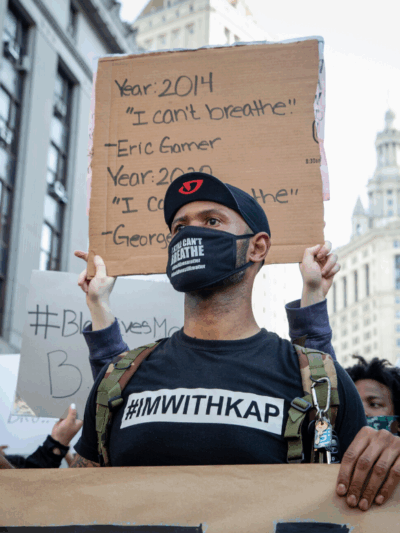
Jul 22, 2020
ACLU of South Carolina Statement on Dangerous Police Expansion in Charleston
Yesterday the Charleston Police Department and Charleston County Sheriff's Office announced plans to increase police actions in Charleston, including ‘pop-up traffic checkpoints’ and the activation of the SWAT team for proactive interdiction patrol.We know what happens when police go down this road, it’s not new. All this will do is further criminalize Black and poor people. For example, while research shows that Black and white people use marijuana at roughly the same rate, Black people are 4.2 times more likely to be arrested for marijuana possession in Charleston County.This police escalation comes nearly two months after Charleston area law enforcement departments participated in mass police violence on May 31 in Marion Square, deploying potentially lethal weapons against people peacefully protesting for racial justice and against police violence. And, later that night area law enforcement continued their violence against Eastside community members. Yet, the Charleston Police department and Charleston County Sheriff’s Office continue to ignore community calls for an apology and investigation into their officers’ actions.The activation of SWAT for proactive interdiction patrols signals an additional concern. As the ACLU found in its report, War Comes Home: The Excessive Militarization of American Policing, the militarization of policing escalates the risk of violence, undermining civil liberties and disproportionately harming Black people.Special Weapons and Tactics teams, commonly known as SWAT, were first created in the late 1960s to address imminent, violent situations that regular law enforcement officers were untrained for, such as hostage and active shooter situations. In the 1980s, approximately 20 percent of small towns in the U.S. had a SWAT team. By the mid-2000s that number had jumped to 80 percent, and by the late-1990s almost 90 percent of large cities had them. The number of SWAT raids also grew at an astonishing pace, from approximately 3,000 a year in the 1980s to approximately 45,000 a year by the mid-2000s. In addition to the massive uptick in their deployment, the mission of SWAT teams has also drastically changed.According to the ACLU's report, as of 2013 79 percent of SWAT deployments were for the purpose of executing a search warrant while only 7 percent were for imminent, violent situations.The deployment of SWAT teams for proactive interdiction patrols shows that Charleston’s police and sheriff’s departments are less concerned with serving and protecting our communities, and more concerned with waging war on the people who live in them.Policing does not make our communities safer — experts have noted that there is no correlation between the number of police and crime rates. Yet, we continue to pour billions of dollars into our police and criminal justice system each year. If our society truly wants to stop the murder and other forms of violence against Black people by police and actually make our communities safer then we must invest in people and communities instead of police and prisons. This will not fix all of our injustices, but it will be a major and necessary start.

Jul 20, 2020
Lawmakers Must Demand Effective Police Body Camera Programs
Following the murder of Walter Scott by the North Charleston Police Department five years ago, South Carolina lawmakers passed legislation requiring all law enforcement officers to wear body cameras. In the five years since the law’s passage, law enforcement have turned a tool sold to the public as a way to strengthen law enforcement accountability and community trust of law enforcement into a tool to shield law enforcement officers from accountability. As calls for expanding body camera programs grow in the wake of more police violence, lawmakers must codify strong policies governing their use, including the following mandates:
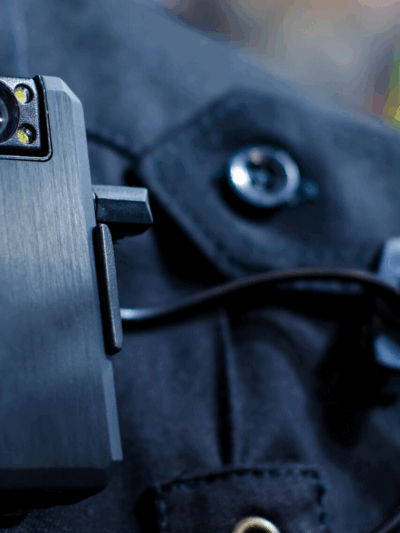
Jul 18, 2020
We Won't Stop Fighting for Incarcerated People.
We are united in solidarity with incarcerated people and their loved ones and allies. The recent spike in COVID-19 cases and deaths among our state’s prison population is the tragic result of a failure of leadership.South Carolina has a moral and legal obligation to protect the people it incarcerates. For months we have asked Governor Henry McMaster, Department of Corrections Director Bryan Stirling, and the Board of Paroles and Pardons uphold this obligation in the face of COVID-19, including releasing those most vulnerable to contracting and dying from this virus. South Carolina officials have ignored their responsibility. The consequences are tragic and predicted.Because South Carolina’s leaders have failed to uphold their Constitutional duty to protect people in their custody, in April, we filed a federal lawsuit against them. The judge assigned to our case has ordered us to work with the state to find ways that will improve conditions for incarcerated people.These priorities include:
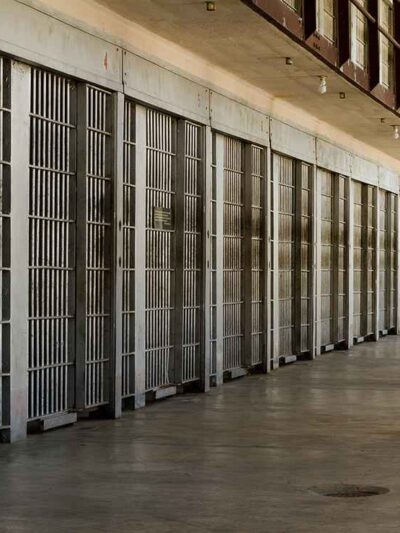
Jul 13, 2020
OP ED: Beyond Banning Chokeholds
This op ed was published by The Times and Democrat on July 12, 2020. Read the full piece here.Orangeburg City Council approved a resolution prohibiting police officers from using chokeholds and strangleholds. The resolution, which was initiated and championed by the Orangeburg Department of Public Safety, also updates the department’s use-of-force policy to require officers to intervene if they witness a fellow officer behaving in a way that is inappropriate, illegal or in violation of department policies.

Jul 10, 2020
Introducing Nick Mercer, Our Newest Team Member!
My name is Nick Mercer (he/him/his) and I am thrilled to be joining the ACLU of South Carolina’s team as the Principal and Leadership Gifts Manager.I am originally from Maryland and moved to South Carolina to begin my career working in teen pregnancy prevention and sexual assault advocacy. I became passionate about advocacy and went back to graduate school to learn how I could apply my passion to serving my community. Throughout graduate school I worked for a consulting organization that provided free and low-cost capacity building services to local nonprofit organizations. Some of my absolutely incredible clients included an LGBTQ organization, a university-wide program addressing community homelessness and food insecurity, and an organization serving blind people and others with visual impairments. I fell in love with fundraising during graduate school and after graduating led annual giving for a statewide conservation organization just as we were finishing a $25 million comprehensive campaign.I am incredibly grateful for all of my prior experiences but given the unique time in which we all find ourselves I feel called to advocacy and policy change – and that is just one reason why I am so excited to be part of the ACLU of SC.The challenges we face as a state are well documented. We live in a state where lawmakers continually attempt to take away access to safe abortions while they defend taxpayer-funded foster care agencies that discriminate against LGBTQ people. With the nation’s second highest marijuana possession arrest rate, our state remains an active warrior in the racist and defunct war on drugs. Our two-tiered system of justice continues, where people with resources can minimize the fallout from criminal charges yet people without access to resources find themselves dealing with escalating cycles of fees, jail time and life-altering criminal records. Our state desperately needs change and the ACLU of SC is working to bring about that change.In addition to this ongoing work, the global pandemic and time of unprecedented civic unrest in which we all find ourselves makes the work of the ACLU of SC more relevant now than ever. For example, we are calling for the South Carolina Department of Corrections (SCDC) to release all incarcerated people who are medically vulnerable, over the age of 55 or who are within six months of their release. This call is based on the overwhelming evidence that shows that these groups do not pose a risk to society and are at an increased risk for contracting and experiencing harmful effects from coronavirus. SCDC has not complied with this request, so we are suing.We also recently demanded an apology from the Charleston Police Department after they perpetrated brutality against peaceful protesters and Black community members in Charleston’s Eastside community. We recognize that our policing system is not broken – but that it is working exactly as it was designed. The injustices that we now routinely see play out on social media feeds are not new – they have existed for all of American history with the only difference being that these injustices can now be documented and widely shared at the speed of light. We are united with activists and organizations calling for a comprehensive conversation about what constitutes true public safety and the fundamental role law enforcement should play in our communities.The ACLU of SC stands for reproductive rights; immigrant rights; LGBTQ rights; rights for people who are incarcerated; rights for people who are protesting; rights for everyone. I am honored and humbled to be part of an organization fighting for a South Carolina that is just and equitable for all.If you are interested in becoming part of this crucial work, feel free to connect with me at [email protected].
By Nick Mercer

Jul 10, 2020
How Reproductive Justice is Part of an Anti-Racist Agenda
The calls of activists have forced a national reckoning with the legacy of white supremacy in our country. That reckoning has led us to examine the systems that exert control over and oppress Black lives, from policing to reproductive health care.
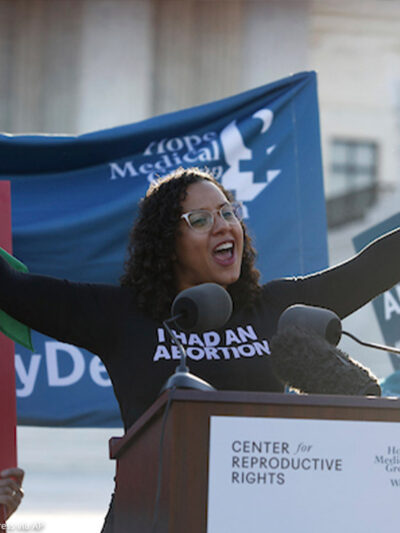
Jul 03, 2020
More Brutality is Not An Acceptable Response to Protests Against Police Brutality
On Sunday, May 31 we watched as multiple police departments converged in Marion Square to break up peaceful protests calling for racial justice and an end to police brutality against Black people. Law enforcement’s response to a non-violent protest about police violence was pure and unnecessary brutality.The police violence we witnessed first-hand matches the videos we’ve seen of police violence that occurred later that evening in Charleston’s Eastside community, where officers carried on their brutality against Black community members.The weapons that law enforcement used to indiscriminately brutalize people in Marion Square and the Eastside can and have killed people and caused other long-term health consequences. Additionally, experts have clearly warned that the use of tear gas threatens to worsen the spread of COVID-19, which we know is disproportionately impacting Black and Brown communities. This excessive, unprovoked police action is a part of a pattern that cannot be ignored.We are united in solidarity with Charleston’s Eastside and all of South Carolina’s communities who face police violence. Calls for accountability have been met with silence from Charleston Police Chief Reynolds and other local and statewide law enforcement leaders whose officers executed this pattern of violence. It is unconscionable that law enforcement have chosen to respond to community concerns about police violence with silence.Police brutality has a long history in America. Throughout history, our laws and political leaders have protected the oppressor over the oppressed — from punishing abolitionists instead of slave owners, to punishing opponents of mass incarceration and police violence instead of those who perpetuate it.The police violence witnessed by Eastside community members was not an anomaly. Our policing system isn't broken — it's working as it was designed. Police have been, and continue to be, a key mechanism for enforcing many of these racist and exploitative policies. Coming to terms with that means recognizing that the system has to be completely dismantled so that Black people can finally live freely and without fear in this country.Law enforcement actions on May 31 made another great case for why we must drastically reduce policing in our society, especially in communities of color that historically have been over-policed. It's time for Charleston’s political leaders to listen to and learn from those directly harmed by police violence and to finally build a Charleston that is safe and just for all.

Stay Informed
Sign up to be the first to hear about how to take action.
By completing this form, I agree to receive occasional emails per the terms of the ACLU’s privacy statement.
By completing this form, I agree to receive occasional emails per the terms of the ACLU’s privacy statement.
